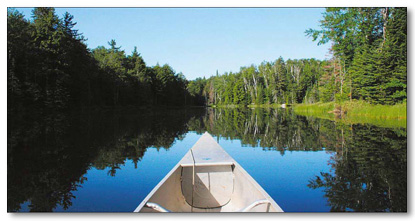Everything I need to know about tolerance I learned at Lake Simcoe
- BARBARA KAY
When one is living off the generous revenues from capital painstakingly amassed by ones forebears over centuries, it is disingenuous to pretend it is the fruit of ones own secular intellectual labours.
 |
J. Kupitsky/National Post
|
Comes Canada Day and the annual glowy focus on the years diverse multicultural crop of new Canadians, I remember summers in the late 1940s at our Lake Simcoe cottage community north of Toronto Balfour Beach and the camaraderie I enjoyed at the local day camp.
Sociologically, my summers recapitulated city life: Instead of a largish brick house, a modest clapboard bungalow; instead of school, camp; instead of study, play. But in formative respects Balfour Beach was also a cultural ghetto, where every family was a replica of my own white, Jewish, middleclass, with two parents (working father, housewife mother) per household.
Thus, in every season and setting, I was exposed to zero diversity of religion, colour, race, ethnicity or sexuality (that I was aware of ). According to PC playbooks, I should have ended up a powerless victim of the patriarchy and my male peers as sexists, all of us racist, homophobic and our families being naturally very supportive of the fledgling state of Israel colonialist to boot.
Never happened. In fact, while feminism and multiculturalism hadnt emerged to guide us impressionable children on the path to the new Jerusalem, many men and women of my cohort ended up finding career or volunteer self-realization as champions of the very oppressed groups they had never known in the flesh. As did many of the equally diversity-challenged traditional Christians I eventually met and befriended at university.
Today a huge number of my former childhood and university friends are zealous apostles of diversity and equity culture, the bellwethers of Canadian liberalism: academics, lawyers, therapists, equity activists, NGO missionaries even Supreme Court justices.
How did such correctness emerge without daily K-12 exposure to dark skin, almond-shaped eyes, hijabs, kirpans and the sight of gay men locked in romantic embrace? Because although secularist ideologues sometimes give that impression, social justice wasnt invented in the 1960s countercultural movement. Our parents, teachers, clerics and camp counsellors taught us it was right to be tolerant, compassionate and fair, and wrong to be intolerant, hardhearted and unfair, so that when challenged by circumstance, we would and did act according to those received values. In the end, an entrenched moral compass counted for a more progressive outcome than growing up amongst actual diversity.
Tolerance, compassion and fairness are still held up as ideals by my PC peers. That is good. But they balk at acknowledging their source. They wont pay the special homage owed the civilization their own, Judeo-Christian that seeded and nurtured their moral outlook, nor will they encourage that homage in people who arrive here from harsher, less humanely visionary societies. That is wrong. |
Even in the bland, conformist and homogeneous Canada of the 1950s, decent people didnt need state directives to feel disgust at racism. Theodore Bilbo was a virulently racist Mississipppi senator, who was known for his appalling public vituperation against negroes (as they were then called) and foreigners. In response, our indignant camp counsellors included in our morning singalongs a paean to immigrants contribution to national vigour, whose bouncy refrain we belted out with gusto:
Listen, Mr Bilbo, listen to me,
Ill give you a lesson in history;
Listen while I tell you bout the foreigners you hate
Theyre the very same people made America great.
Every morning we also sang a mantra-like ditty:
Im proud to be me
But I also see
Youre just as proud to be you;
We may look at things a bit differently-
But lots of good people do
This was the lite version of city lifes religious instruction, when we learned the more eloquent originals: Do not do unto others that which is hateful to you, love the stranger for you were strangers and love thy neighbour as thyself. These commandments and the impetus behind Im proud to be me taught us to respect others as, not instead of, ourselves.
Tolerance, compassion and fairness are still held up as ideals by my PC peers. That is good. But they balk at acknowledging their source. They wont pay the special homage owed the civilization their own, Judeo-Christian that seeded and nurtured their moral outlook, nor will they encourage that homage in people who arrive here from harsher, less humanely visionary societies. That is wrong. When one is living off the generous revenues from capital painstakingly amassed by ones forebears over centuries, it is disingenuous to pretend it is the fruit of ones own secular intellectual labours.
Give credit where it is due. Weve seen too many winters of Western civilizations discontent with its past, when its been all about proud to be you. Next Canada Day, let the heirs of Western civilization once again be proud to be us.
 This is Meaghen Gonzalez, Editor of CERC. I hope you appreciated this piece. We curate these articles especially for believers like you.
This is Meaghen Gonzalez, Editor of CERC. I hope you appreciated this piece. We curate these articles especially for believers like you.
Please show your appreciation by making a $3 donation. CERC is entirely reader supported.

Acknowledgement
Barbara Kay "Everything I need to know about tolerance I learned at Lake Simcoe." National Post, (Canada) 5 July, 2006.
Reprinted with permission of the National Post.
The Author
 Barbara Kay is a Montreal-based writer. She has been a Comment page columnist (Wednesdays) in the National Post since September, 2003.
Barbara Kay is a Montreal-based writer. She has been a Comment page columnist (Wednesdays) in the National Post since September, 2003.




